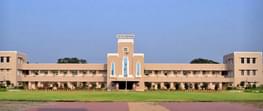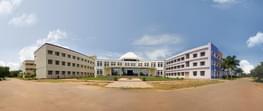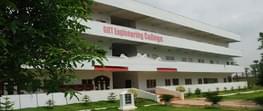Dr. Maganti Venkatesh pursued a B.Tech in Computer Science & Information Technology from Kakinada Institute of Engineering and Technology, Affiliated to JNTUK, Kakinada, Andhra Pradesh, in 2005. He pursued M.Tech in Computer Science and Engineering from Sasi Institute of Technology & Engineering, Affiliated to JNTUK, Kakinada, Andhra Pradesh, in 2011; and has pursued Ph.D. from Hindustan Institute of Technology & Science, Deemed-to-be-university, Padur, and Chennai. Currently, he is working as an Associate Professor and HOD - Department of AI & ML, Aditya Engineering College (A), Surampalem, Accredited by NBA & NAAC with an 'A++' Grade, Permanently Affiliated with JNTUK, Kakinada, East Godavari District, Andhra Pradesh. He has 19 years of teaching experience. He has published 3 Textbooks and 12 Journals in Scopus and SCI-indexed Journals sharing his expertise in Machine Learning and Deep Learning. He has presented at National and International conferences. His areas of Interest are Educational Data Mining, Machine Learning, Deep Learning, Data Science, and Optimization Algorithms. He has sound knowledge of Programming Languages like C, Java, Python, SpringBoot, Web application development, and Mean Stack Technologies. He is also a Technical Trainer, and has trained freshers in the IT sector, and trained several engineering students for their campus interviews.

Being a HOD of AIML & DS Dept., what are your roles and responsibilities towards the students?
As the Head of the AI/ML and DS Department, my foremost responsibility is to ensure the holistic development of students in the rapidly evolving fields of Artificial Intelligence, Machine Learning, and Data Science. This includes overseeing the design of a relevant and up-to-date curriculum, fostering an environment conducive to research and innovation, and facilitating opportunities for practical experience. I aim to support faculty in providing effective teaching and mentorship, while also actively promoting industry engagement and internships for students. Additionally, my role involves creating a diverse and inclusive learning environment, encouraging continuous feedback, and staying attuned to emerging trends. Ultimately, my commitment is to empower students with the knowledge, skills, and mindset needed for success in the dynamic landscape of AI, ML, and DS.
How do you tend to establish healthy relations with the students and fellow faculty?
Implementing transparent communication and a shared vision with both students and faculty is crucial. Hosting regular town hall meetings, seeking input on decision-making, and addressing concerns promptly contribute to an inclusive environment. Organizing social events, workshops, and collaborative projects creates opportunities for bonding among faculty and students, ultimately establishing a sense of community within the department.
How do you try to bring in a practical approach towards subjects and make it industry-oriented?
Regular industry interaction is key. We invite professionals for seminars, panel discussions, and mentorship programs. This exposes students to diverse perspectives, industry expectations, and current trends. Additionally, our faculty, with industry experience, brings practical insights into the classroom, linking theory to real-world applications. This dual emphasis on theory and application ensures our graduates are well-equipped for the demands of the industry.
What are the best practices offered by the department to the students that help them gain the necessary skills?
We foster a culture of continuous learning, encouraging students to pursue certifications and engage in extracurricular activities like Hackathons. Industry partnerships provide internships and guest lectures, offering valuable insights and networking opportunities.
How do you strategize the curriculum and how often does it get updated to make it befitting for the students?
The curriculum strategy involves a bi-annual assessment to align our courses with the ever-evolving fields of AI, ML, and DS. We leverage a collaborative approach, involving faculty, industry experts, and alumni feedback. This continuous feedback loop enables us to identify gaps, update content, and introduce new elective modules that cater to emerging industry needs. This agile curriculum development process ensures that our students graduate with the most relevant and in-demand skills.
Check Aditya Engineering College Courses & Fees
What are your views on the placements and higher education of the students from your department and how does your department prepare students for Higher education?
Placements and higher education are integral facets of our department's commitment to student success. We collaborate closely with leading companies, aligning our curriculum with industry needs to enhance employability. To prepare students for higher education, we emphasize research projects, internships, and faculty mentorship. Our students engage in academic conferences and workshops, honing their research and presentation skills. Additionally, we provide comprehensive counseling on pursuing master's or doctoral degrees, tailoring guidance to individual aspirations. By instilling a passion for lifelong learning and facilitating diverse opportunities, we empower our students to thrive in both professional and academic arenas.
How do you help your student cope with the competition being so high in the outside world?
To address the intense competition in the outside world, we emphasize skill development and experiential learning. Our curriculum includes real-world projects and collaborations with industry partners, allowing students to apply theoretical knowledge to practical scenarios. We organize regular industry interactions, bringing professionals to share insights and opportunities. Moreover, personalized career guidance and networking events empower students to stand out in a competitive job market. Alumni engagement and mentorship programs connect students with successful professionals, providing valuable advice and networking opportunities.
Do you have any extracurricular activities/ programs to enhance the skills of the students or expose them to real-world challenges?
We recognize the importance of practical exposure in shaping well-rounded professionals. Our department actively promotes extracurricular activities to supplement academic learning. We organize regular coding boot camps, industry visits, and collaborative projects with local businesses. Additionally, students have the opportunity to participate in research initiatives and present their findings at conferences. These activities not only enhance technical skills but also foster a problem-solving mindset. By engaging with real-world challenges, our students graduate with not just theoretical knowledge but also the practical experience needed to excel in the competitive landscape of AI, ML, and DS.
What are the challenges you faced/ are facing to uplift the quality of education in your department?
Uplifting the quality of education in the department has presented challenges in adapting to the rapidly evolving nature of AI/ML and DS. Ensuring the curriculum remains current and relevant requires constant updates and industry collaboration. Faculty development is another challenge, as keeping pace with emerging technologies demands continuous learning. Balancing theoretical knowledge with practical applications while addressing resource constraints poses an ongoing challenge, requiring strategic planning and investment in infrastructure.
When you came to college, what was your vision and how are you trying to achieve the same?
Entering college, my vision was to cultivate a learning environment that goes beyond traditional academics, emphasizing practical skills and real-world applications in AI, ML, and DS. I've worked towards this vision by actively involving industry professionals in curriculum design, fostering a culture of research and innovation, and providing opportunities for internships and industry exposure. The department's focus on continuous improvement, collaboration with leading companies, and the integration of emerging technologies into the curriculum reflects my commitment to preparing students for the dynamic and challenging landscape of artificial intelligence, machine learning, and data science.

![Aditya Engineering College - [AEC]](https://image-static.collegedunia.com/public/college_data/images/logos/1591109396Annotation20200602201850.jpg?h=71.7&w=71.7&mode=stretch)

.png?h=132&w=263&mode=stretch)
.png?h=132&w=263&mode=stretch)



.png?h=132&w=263&mode=stretch)

.png?h=78&w=78&mode=stretch)





















![Aditya Engineering College - [AEC]](https://image-static.collegedunia.com/public/college_data/images/logos/1591109396Annotation20200602201850.jpg?h=72&w=72&mode=stretch)
.png?h=72&w=72&mode=stretch)



.png?h=72&w=72&mode=stretch)



 (1).png?h=72&w=72&mode=stretch)
.jpeg?h=72&w=72&mode=stretch)
.png?h=72&w=72&mode=stretch)
.png?h=72&w=72&mode=stretch)



















Comments